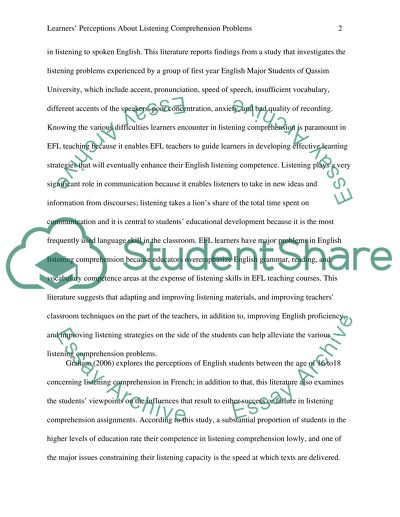Cite this document
(“Learners' perceptions about listening comprehension problems, Dissertation”, n.d.)
Retrieved from https://studentshare.org/education/1483140-learnersyie-perceptions-about-listening
Retrieved from https://studentshare.org/education/1483140-learnersyie-perceptions-about-listening
(Learners' Perceptions about Listening Comprehension Problems, Dissertation)
https://studentshare.org/education/1483140-learnersyie-perceptions-about-listening.
https://studentshare.org/education/1483140-learnersyie-perceptions-about-listening.
“Learners' Perceptions about Listening Comprehension Problems, Dissertation”, n.d. https://studentshare.org/education/1483140-learnersyie-perceptions-about-listening.


